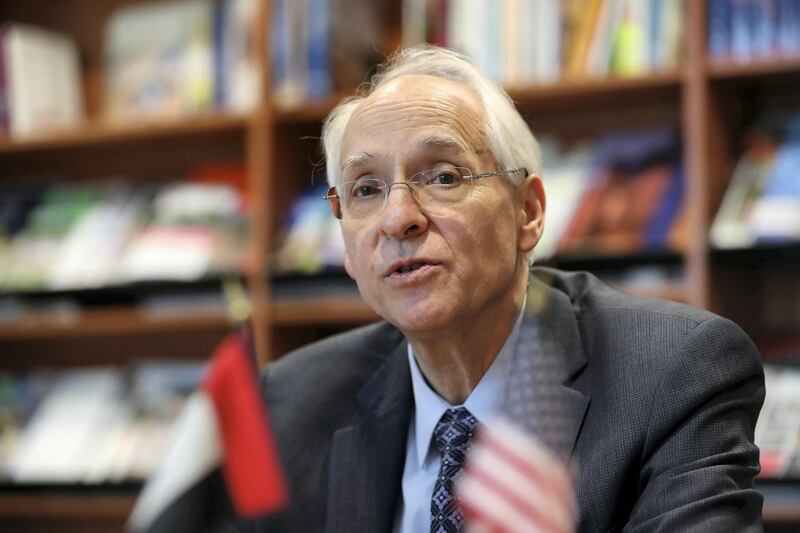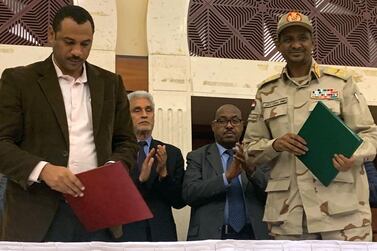The power-sharing agreement signed last week by representatives of Sudan’s protest and the ruling military council is just the first step towards a forming a civilian government, the US Envoy to the country has said.
Sudan is embroiled in a political crisis after long-time ruler Omar Al Bashir’s was forced from office after months of protests in April. Both the military and pro-democracy movement have been locked in a tussle for power that resulted in mass protests and dozens being killed.
“The agreement that was reached on July 17th is only the first step in forming the transitional government, and we certainly need to see the Sudanese reach agreement on the further step of the Constitutional Declaration,” Donald Booth told reporters during a telephone briefing from Brussels earlier this week.
The two sides agreed on a joint sovereign council that will rule Sudan for a little over three years while elections are being organised. The deal comes after intensive efforts and pressure from regional and international powers.
A general will head the ruling body during the first 21 months of the transition, followed by a civilian for the remaining 18 months, according to the framework agreement.
Both the African Union and Ethiopia led the diplomatic mediation process.
But Mr Booth says much work is needed to speed up the political process.
A constitutional declaration is expected in the coming days that will address “what the functions of the different parts of the transitional government will be,” the US Envoy said.
“It’s in that document where issues of relative roles and powers of the Sovereignty Council, the Prime Minister and the Cabinet, and ultimately of the Legislative Council will be addressed,” Mr Booth said.
“Who will lead the transitional government is still undecided,” he said.
The US Envoy urged the two sides to resolve their outstanding issues so that the country could begin the process of democracy.
“The sooner that Sudan can establish a civilian-led transitional government, it can being then to address issues of reform and moving forward to a better future,” he said.
The talks about the formation of a new ruling body stalled and on June 3, elements form the Rapid Support Force, a government-backed militia, move to clear what they called “criminal elements” from a mass sit-in outside the defence ministry. In the operation, protesters say over 100 demonstrators were killed.
The fallout, Mr Booth said, forced the military to look again at negotiations with protest groups.
“The 3rd of June was a signal of the limits of people power,” Mr Booth said.
“But then there was the 30th of June, in which close to a million people took to the streets outside of Sudan and I think that demonstrated the limits of the military power over the people.”
The transitional period should also aim to form an independent commission that will look into the violence on June 3, Mr Booth said.
The military has said it will carry out an inquiry into what happened.
“A commission has not been established. Who will establish it and how it will be independent has not been yet thoroughly agreed,” he said.
“We have certainly cautioned the Sudanese parties that an investigation done in-house, no matter how well done, will always have some suspicion,” Mr Booth said.
The envoy said that Washington is working with regional powers to build support for the transitional process but added that it's important the thrust comes from Khartoum.
"I just think that it’s important that we give the Sudanese space to negotiate with each other and to continue to express our support for getting to this civilian-led transitional government that will be broadly supported by the Sudanese people."







